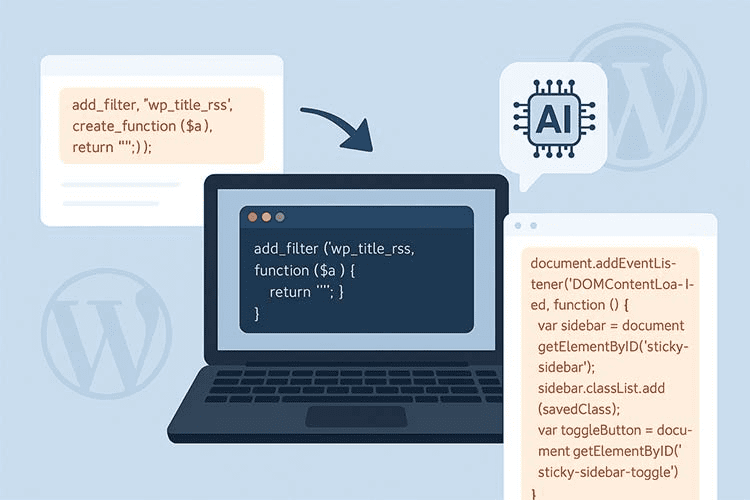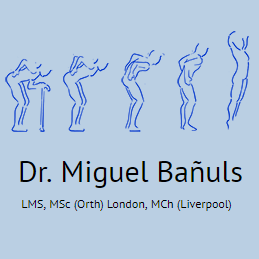Refactor WordPress code to breathe new life into your website and ensure that it stays aligned with modern best practices. As digital landscapes evolve, so must your website, especially when relying on a platform as versatile as WordPress. Many site owners overlook the importance of WordPress code refactoring, which not only fixes outdated code but also modernizes PHP code and enhances overall performance. With tools like AI for WordPress, you can simplify the complexities of upgrading your WordPress site, making it more secure and efficient. By tackling these issues head-on, you can revitalize your online presence and ensure it remains competitive and resilient in today’s fast-paced digital environment.
Updating and enhancing your site’s functionality is a critical aspect of maintaining its relevance and security. When we discuss improving WordPress code, we’re essentially talking about the process of transforming legacy scripts, optimizing performance, and adopting newer technologies. Whether it’s the need to fix outdated code or modernize PHP systems, effective code maintenance is essential for a seamless user experience. Streamlining your website can involve utilizing AI-powered solutions to assist in identifying areas for improvement, thus paving the way for a smoother upgrade of your WordPress site. Engaging in this proactive maintenance ensures that your digital platform not only looks good but also performs efficiently.
Understanding the Aging of WordPress Sites
WordPress sites often don’t age gracefully. Over time, they can accumulate outdated plugins, themes, and custom code that no longer meets modern standards. This degradation is particularly evident in sites built over the last two decades, as WordPress has evolved substantially since its inception. While the platform itself is robust, elements such as old PHP versions and deprecated functions can lead to functionality issues or security vulnerabilities.
The risk isn’t just in performance but also in user experience. Visitors may encounter broken features or slow loading times due to legacy code, negatively impacting engagement. Therefore, taking the time to refactor your site’s codebases should be a priority. By doing so, not only can you enhance site performance, but you can also improve security and ensure compatibility with the latest web technologies.
Utilizing AI for Code Refactoring
When it comes to refactoring outdated WordPress code, AI tools can make your life much easier. However, it is essential to manage your expectations. AI isn’t a magic solution; you shouldn’t expect it to flawlessly update an entire website in one go. Instead, focus on tackling one specific issue at a time. By uploading snippets or single files, you’ll provide the AI with context it needs to generate effective solutions.
For example, if you’re facing PHP compatibility issues, share the exact error message with the AI, along with the code responsible. By being specific in your queries, you enable the AI to suggest the most relevant fixes. Remember, refactoring is a collaborative process between you and the AI; think of it as a partner guiding you through modernizing your code.
Identifying PHP Compatibility Issues
PHP compatibility is one of the most critical aspects of maintaining a WordPress site. As PHP versions advance, older functions may become deprecated, leading to significant errors when your site attempts to run them. For instance, if you find you’re using `create_function()`, you’ll face compatibility issues with current PHP versions, as this function was removed from PHP 8.0.
To address this, debug your WordPress site to identify errors, such as enabling debugging mode or utilizing a staging environment. Once you pinpoint problematic code, consult AI tools for assistance in rewiring it to comply with newer standards. This not only enhances your site’s performance but also ensures it remains secure against vulnerabilities present in outdated code.
Modernizing JavaScript with AI
JavaScript is another area where legacy code can hinder a website’s performance. Outdated libraries or bloated code can slow down loading times and offer avenues for potential exploits. Transitioning away from such legacy scripts is crucial. Thankfully, AI can assist in modernizing these JavaScript files by converting them from old practices to current standards.
Converting a jQuery script to vanilla JavaScript can often yield cleaner, faster code. By asking AI to perform this conversion, you not only reduce dependencies on outdated libraries but also streamline your code. This process illustrates the potential of AI not just as a debugging tool, but as a resource for enhancing overall code efficiency.
Performing a Comprehensive Code Review
In the realm of maintaining your WordPress site, conducting a comprehensive code review is vital. This allows you to identify and refactor legacy code, keeping your site functional and secure. Leveraging AI tools can significantly streamline this review process by rapidly pinpointing issues and suggesting solutions.
AI isn’t meant to replace skilled developers but can serve as an invaluable assistant. By pairing human intuition with AI’s analytical prowess, you can efficiently update outdated code, ensuring a seamless user experience while enhancing site security. Don’t shy away from delving into your code; with AI’s capabilities, a modernized site is within reach.
Best Practices for Using AI in Refactoring
To make the most of AI tools during the refactoring process, adhere to some best practices. Start by clearly defining the scope of your queries. Instead of overwhelming the AI with large amounts of code, break it down into smaller, manageable sections. This approach helps the AI understand the context better and produce more accurate solutions.
Additionally, always include specific details about your goals and the errors encountered. The more information you provide, the better the AI can assist you. By treating the AI as a collaborator in your coding endeavors, you ensure that your refactoring efforts are effective and yield the desired results.
Maintaining Website Performance with AI
Once you’ve begun the process of updating your WordPress site with AI, it’s important to establish a routine maintenance plan. Regularly checking your code and dependencies will help you stay ahead of potential issues. AI can assist in monitoring these elements, alerting you when something goes awry or when updates are required.
Moreover, by automating parts of this maintenance work, you free up more time to focus on content creation and user engagement. The long-term benefits of maintaining a clean codebase translate into improved performance, better user experiences, and potential growth in site traffic.
The Future of AI in WordPress Development
The evolving landscape of AI technology will continue to shape WordPress development. As these tools become more sophisticated, we can expect increased capabilities in code analysis and refactoring. Future models may even anticipate coding problems before they manifest, proactively guiding developers toward best practices.
Embracing AI as an integral part of the development process not only streamlines tasks but also enhances the quality of the code produced. As a result, WordPress developers can focus on creating innovative functionalities that keep their sites competitive in an ever-changing digital world.
Wrapping Up: Refactoring with AI
In conclusion, refactoring outdated WordPress code using AI is a smart move for modern web developers. While challenges exist, employing AI tools can drastically reduce the time and effort required to identify and fix issues. Taking the necessary steps to modernize your code alongside AI assistance can lead to more efficient, secure, and user-friendly websites.
Ultimately, refactoring is not just a technical necessity; it’s about breathing new life into your digital presence. With AI as your trusty ally in this journey, maintaining a high-quality, updated website becomes a manageable and rewarding endeavor.

Conclusion
In conclusion, refactoring your outdated WordPress code is essential for maintaining the functionality and security of your website. As technology continues to advance, legacy code can pose significant risks and hinder performance. However, with the aid of AI tools, the daunting task of modernizing your codebase has become more manageable. While AI may not replace the expertise of a seasoned developer, it serves as an invaluable assistant in identifying issues and providing solutions, thus allowing website owners to streamline the refactoring process and enhance their site’s overall quality.
By following actionable steps, you can significantly improve your site’s codebase. For instance, focusing on smaller snippets allows AI to give more contextually relevant advice. Additionally, modernizing both your PHP and JavaScript can lead to better performance and security. Consider these points as you embark on your refactoring journey:
• Stay proactive by consistently updating your code to ensure compatibility with the latest technologies.
• Utilize AI as a support tool, providing it with detailed prompts for targeted assistance.
• Embrace the opportunity to learn and grow your coding skills by experimenting with AI-generated solutions.
Final Thoughts
In summary, the journey of refactoring code on your WordPress site doesn’t have to be daunting. The evolution of AI technology presents a rich opportunity for developers, site managers, and small business owners to harness newfound efficiencies in their coding processes. No longer must website owners tolerate the pitfalls of outdated scripts or the safety concerns that accompany obsolete code – AI can swiftly identify the flaws and suggest modern solutions, leading to more robust websites.
As you approach your own refactoring tasks, always remember:
• Embrace AI as your coding ally instead of a replacement for human insight.
• Regular maintenance and updates can prevent more significant problems down the line.
• The right approach to refactoring combines traditional programming knowledge with the innovative capabilities of AI, forging a path toward a more secure and efficient online presence. Armed with these strategies, your WordPress site will not just survive but thrive well into the future.















